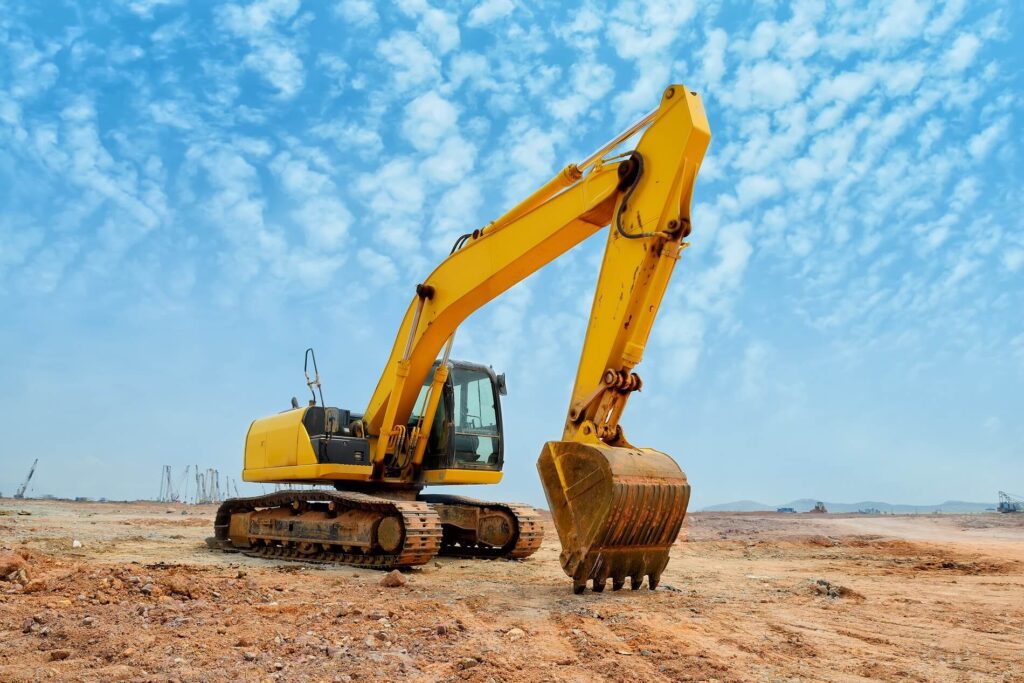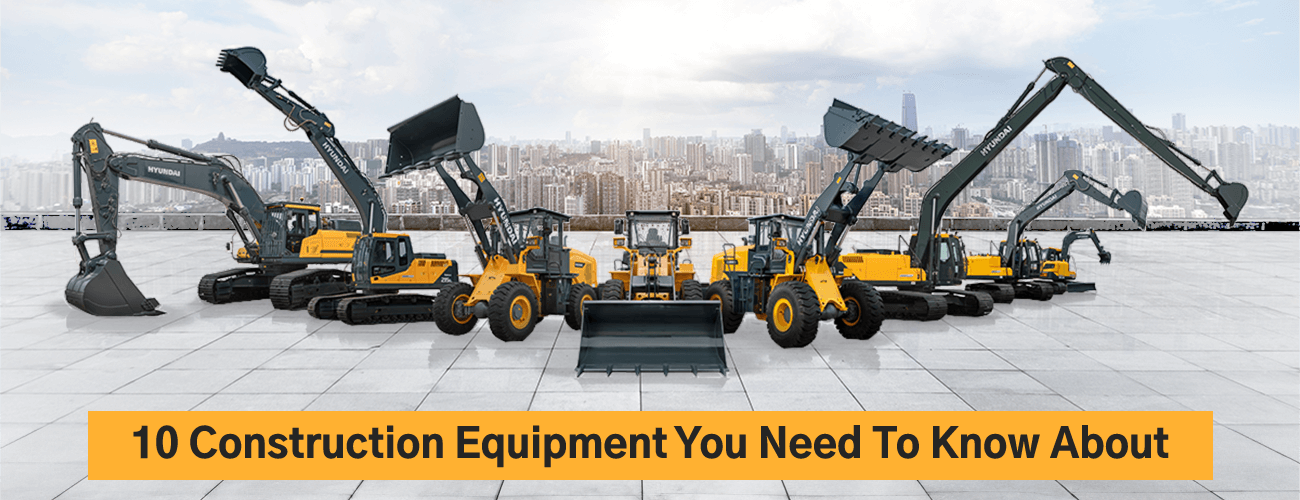Checking Out the Financial Benefits of Leasing Building Tools Compared to Possessing It Long-Term
The decision between owning and renting out construction tools is crucial for economic administration in the market. Renting out deals instant price savings and operational flexibility, allowing business to allocate resources a lot more effectively. On the other hand, possession includes considerable lasting financial dedications, consisting of maintenance and depreciation. As specialists evaluate these choices, the influence on money flow, project timelines, and technology access becomes increasingly substantial. Recognizing these subtleties is crucial, specifically when thinking about exactly how they align with specific task requirements and monetary techniques. What factors should be prioritized to make certain ideal decision-making in this complicated landscape?

Price Comparison: Renting Out Vs. Having
When examining the economic effects of having versus renting construction tools, a complete cost contrast is necessary for making informed choices. The option in between having and renting can dramatically affect a firm's profits, and comprehending the linked costs is important.
Renting construction devices commonly involves lower in advance expenses, permitting businesses to allocate funding to other functional demands. Rental costs can build up over time, potentially exceeding the expenditure of possession if tools is required for an extended period.
Conversely, having building tools requires a considerable preliminary financial investment, in addition to recurring prices such as insurance policy, depreciation, and funding. While ownership can lead to long-term savings, it also locks up resources and may not offer the same level of flexibility as renting. Additionally, owning equipment requires a dedication to its use, which may not always align with job demands.
Eventually, the choice to own or rent ought to be based upon an extensive analysis of certain task needs, financial ability, and lasting tactical objectives.

Upkeep Duties and costs
The option in between possessing and renting construction equipment not just involves economic considerations yet additionally includes continuous maintenance expenditures and obligations. Having devices needs a substantial commitment to its upkeep, that includes regular evaluations, repair services, and prospective upgrades. These duties can promptly build up, bring about unexpected prices that can strain a budget plan.
In contrast, when renting devices, upkeep is normally the duty of the rental firm. This plan allows service providers to stay clear of the financial worry linked with deterioration, along with the logistical challenges of scheduling repair work. Rental agreements commonly include stipulations for maintenance, meaning that professionals can concentrate on finishing tasks as opposed to bothering with devices problem.
Additionally, the varied range of devices readily available for lease enables firms to select the most recent designs with advanced modern technology, which can improve effectiveness and productivity - scissor lift rental in Tuscaloosa Al. By deciding for leasings, services can prevent the long-lasting obligation of tools devaluation and the linked upkeep frustrations. Eventually, reviewing maintenance expenditures and obligations is critical for making an educated decision regarding whether to rent or own building and construction tools, substantially click for info affecting general project costs and operational effectiveness

Depreciation Influence on Ownership

A substantial factor to think about in the choice to possess building and construction tools is the impact of depreciation on general ownership costs. Depreciation stands for the decline in value of the devices gradually, affected by elements such as use, deterioration, and developments in technology. As equipment ages, its market price decreases, which can considerably affect the proprietor's financial setting when it comes time to trade the devices or sell.
For building companies, this devaluation can equate to substantial losses if the tools is not utilized to its greatest possibility or if it comes to be outdated. Owners have to represent depreciation in their monetary projections, which can cause greater total costs compared to leasing. Additionally, the tax ramifications of depreciation can be intricate; while it may provide some tax advantages, these are typically countered by the truth of decreased resale value.
Inevitably, the problem of devaluation highlights the significance of comprehending the lasting monetary dedication associated with possessing building and construction devices. Business must very carefully examine exactly how often they will utilize the devices and the possible financial effect of depreciation to make an educated decision concerning ownership versus renting out.
Monetary Versatility of Leasing
Leasing construction equipment supplies significant financial adaptability, enabling business to assign sources much more efficiently. This flexibility is particularly important in an industry characterized by fluctuating task needs and differing workloads. By deciding to rent, services can avoid the significant resources investment needed for purchasing tools, protecting cash flow for other functional requirements.
Additionally, renting devices enables firms to tailor their devices options to details project requirements without the lasting commitment related to possession. This suggests that businesses can quickly scale their tools supply up or down based upon expected and existing job demands. Subsequently, this flexibility minimizes the danger of over-investment in man lift crane on rent machinery that might become underutilized or obsolete with time.
Another financial benefit of renting is the potential for tax benefits. Rental repayments are often considered general expenses, enabling for immediate tax obligation reductions, unlike devaluation on owned and operated equipment, which is spread over a number of years. scissor lift rental in Tuscaloosa Al. This prompt cost recognition can even more enhance a company's cash setting
Long-Term Project Factors To Consider
When reviewing the lasting demands of a construction business, the decision in between renting and possessing equipment comes to be much more complex. For projects with extended timelines, acquiring devices might seem advantageous due to the capacity for lower general costs.
In addition, technological innovations pose a considerable factor to consider. The building and construction market is advancing quickly, with new tools offering improved efficiency and safety and security functions. Leasing allows firms to access the most up to date modern technology without devoting to the high upfront costs related to acquiring. This adaptability is especially valuable for businesses that deal with diverse tasks needing various kinds of tools.
In addition, financial stability plays a vital duty. Owning tools typically requires considerable capital expense look at this website and depreciation problems, while leasing allows for even more foreseeable budgeting and capital. Eventually, the choice between possessing and renting out needs to be straightened with the calculated goals of the construction company, thinking about both awaited and existing project demands.
Verdict
In verdict, renting out building tools supplies considerable monetary advantages over long-term ownership. Eventually, the choice to lease rather than own aligns with the dynamic nature of construction tasks, permitting for flexibility and accessibility to the most current devices without the financial burdens associated with possession.
As tools ages, its market value decreases, which can substantially impact the owner's economic placement when it comes time to trade the equipment or market.
Leasing construction equipment supplies considerable financial adaptability, enabling companies to assign resources extra effectively.Additionally, renting out devices enables business to tailor their tools options to specific task requirements without the lasting commitment associated with possession.In conclusion, renting out construction tools supplies substantial economic advantages over long-term ownership. Ultimately, the decision to rent instead than very own aligns with the vibrant nature of building tasks, allowing for adaptability and access to the most recent equipment without the economic problems associated with possession.